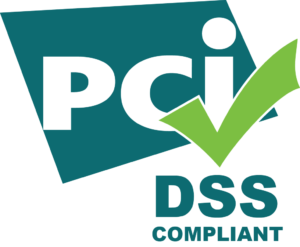PAYOUTS SOLUTIONS LIMITED
AML POLICY
1. Introduction
Payouts (hereinafter referred to as the “Company”) is incorporated under the laws of Kenya having its registered office at Pramukh Towers 4th Floor, Westlands, Nairobi. The Company is authorized as a Business Company under the Business Registration Services (BRS).
This Manual belongs to Payouts and is binding to all employees, senior management, and the Board of Directors.
The Eastern and Southern African Anti-Money Laundering Group (ESAAMLG) has as its objectives the adoption and implementation of the 40 Recommendations of the Financial Action Task Force (FATF), applying anti-money laundering measures to all serious crimes, implementing measures to combat the financing of terrorism, and enforcing other multilateral agreements for the prevention and control of laundering proceeds of crime and terrorist financing.
The Company is committed to combating money laundering. A dedicated Anti-Money Laundering Compliance Officer (AMLCO) has been appointed and is accountable to the Board of Directors and Senior Management. The AMLCO is responsible for training employees, updating internal procedures, and ensuring compliance with AML laws.
2. Policy Statement
This Policy demonstrates our organization’s commitment to fighting money laundering and complying with AML laws and regulations. We recognize the serious implications of money laundering and its effects on financial systems, the economy, and society.
Payouts upholds transparency, accountability, and ethical conduct in all financial transactions. We have adopted robust AML measures to protect our organization, safeguard our reputation, build customer trust, and support the global fight against financial crime.
Our policy emphasizes continuous improvement, strong risk assessments, diligent customer due diligence, comprehensive employee training, robust reporting, and compliance mechanisms.
3. Payouts Key Principles
All employees must follow the Key Principles of our Anti-Money Laundering Manual:
- Protect the Company from money laundering and terrorist financing activities.
- Maintain written AML policies, internal controls, and monitoring systems.
- Train staff on Know Your Customer (KYC) and AML regulations.
- The AML Compliance Committee is responsible for receiving and investigating reports, filing Suspicious Activity Reports (SARs), training staff, and reporting to authorities and management.
4. Money Laundering
Money laundering is the process of converting illicitly obtained funds or assets into “clean” money with no trace to their criminal origin. This includes handling criminal proceeds, investing them in assets, transferring property, and funding terrorism.
4.1 AML Regulatory Framework in Kenya
The Proceeds of Crime and Anti-Money Laundering Act, 2009 established the Financial Reporting Centre (FRC), which works with supervisory bodies like the Central Bank of Kenya (CBK). Companies must:
- Monitor unusual and suspicious transactions.
- Report suspicions to the FRC within 7 days.
- Retain transaction records for at least 7 years.
- Report cash transactions of USD 10,000 or more.
4.2 Stages of Money Laundering
- Placement – Introducing illicit funds into the financial system.
- Layering – Moving funds through multiple transactions to obscure their origin.
- Integration – Reintroducing funds as seemingly legitimate.
5. Counter Terrorist Financing (CTF)
Terrorist financing involves legitimate funds used to support terrorism. Companies must verify customers are not terrorist organizations or conduits for terrorism funding.
6. Risk Assessment
Risk assessment is central to our AML program. We assess customer risk, product risk, and country risk to identify vulnerabilities and apply controls.
7. Know Your Customer (KYC)
We collect and verify customer information such as income, occupation, source of wealth, trading habits, and identity documents to establish legitimate business relationships and detect unusual activity.
7.1 Customer Identification Program
We require official documents such as national ID, passport, driver’s license, or corporate registration documents for verification.
7.2 Recognizing Suspicious Transactions
Suspicious activities include reluctance to provide identity, unclear sources of funds, irrational transactions, sudden changes in transaction patterns, or high-risk international transfers.
8. Customer Due Diligence (CDD)
CDD involves verifying customer identity, assessing risks, and ongoing monitoring to ensure business relationships are legitimate.
9. Enhanced Due Diligence (EDD)
EDD applies to high-risk clients, such as politically exposed persons (PEPs) and customers from high-risk jurisdictions. We gather additional documentation like bank statements and proof of wealth.
10. Suspicious Activity Reporting (SAR)
Suspicious activities must be reported immediately. Red flags include unusual transaction patterns, inconsistent behavior, use of false documents, large unexplained cash deposits, or unnecessary complexity in transactions.
11. Record Keeping
Records of customer identification, transactions, and AML documentation must be maintained securely for at least 7 years and made available to regulators when required.
12. Employee Training
Employees are trained regularly on AML laws, suspicious activity recognition, reporting obligations, and compliance procedures.
13. Compliance Monitoring
We conduct internal audits and risk assessments to identify weaknesses and strengthen our AML framework.
14. Reporting and Escalation
Employees must report AML concerns promptly through confidential channels. Whistle-blowers are protected against retaliation.
15. Regulatory Compliance
We remain aligned with Kenyan and international AML laws through monitoring, audits, training, and cooperation with regulators.
16. Notice to Customers
Customers will be required to provide information to verify their identity.
17. Investigation
The AML Compliance Committee investigates suspicious activities and determines whether to file SARs with regulators.
18. Freezing of Accounts
Accounts suspected to contain criminal funds or fraudulent instructions will be frozen.
19. Enquiries
For further AML enquiries, contact:


